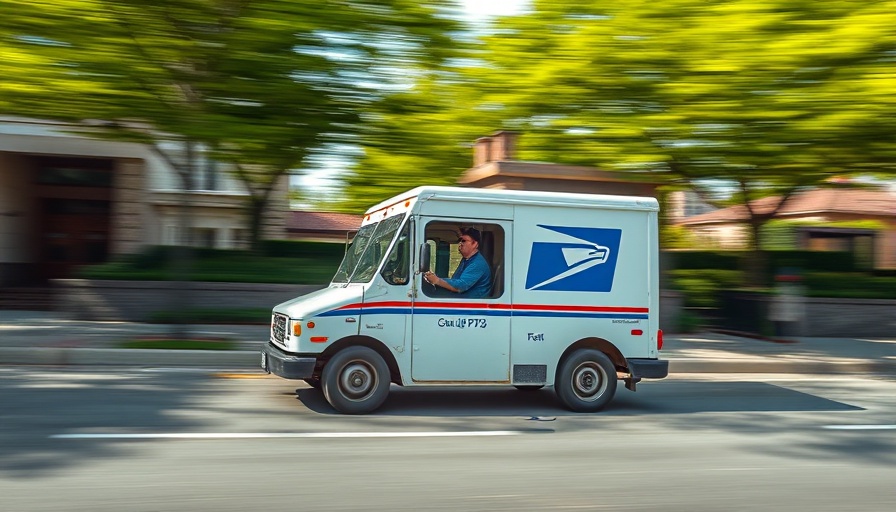
The USPS: More Than Just Mail Delivery
The recent announcement of Postmaster General Louis DeJoy stepping down has ignited discussions about the future of the United States Postal Service (USPS). With proposed privatization and talk of job cuts, it’s crucial to assess the USPS's broader impact beyond delivering mail, particularly on older adults across the nation.
Understanding the USPS’s Role in Older Adult Care
For many senior citizens, the USPS provides vital connection and services that transcend simple mail delivery. As the landscape of postal service continues to shift, preserving these services is paramount for the welfare of older adults, especially in rural settings. Here are six key ways the USPS aids these communities:
1. Carrier Alert Program: A Lifeline for Seniors
The USPS’s Carrier Alert program serves as a critical safety net for older adults or those facing difficulties due to illnesses. By registering with local post offices, participants enable their mail carriers to monitor their mail for signs of distress, such as an influx of undelivered letters. This proactive approach can lead to timely interventions, as carriers are trained to alert local agencies when they notice potential concerns.
2. Delivery of Medications and Health Supplies
For countless seniors, the USPS is not just a means of communication but a reliable source for medications and health supplies. With many pharmacists offering shipping services, older adults can receive vital prescriptions directly to their door, alleviating the burden of travel during health crises.
3. Social Engagement through Mail
Receiving letters and packages can significantly impact the emotional well-being of older adults. The joy of mail—be it from family, friends, or even community members—provides a sense of connection. As we contemplate USPS downsizing, it’s necessary to acknowledge how vital this social interaction is for combating loneliness in older populations.
4. Voting Accessibility
Many older adults rely on the USPS for voting via mail, especially those who may find traveling to polling places challenging. The USPS's role in ensuring timely and secure mail-in ballots for elections is critical for fostering civic engagement among seniors, enabling them to participate fully in democracy without physical limitations.
5. Extended Services: Package and Document Handling
In addition to standard mail, the USPS offers diverse services like package delivery, which can be particularly useful for adults who want to send gifts or receive items without having to navigate busy streets and crowded stores. These services enhance convenience and make life easier for older adults who may rely on assistance.
6. Information Hub for Local Resources
Recognizing that many seniors may not have access to digital information, the USPS frequently serves as an information hub. Through its network of post offices, seniors can learn about local resources, community programs, and assistance opportunities tailored to their health and social needs.
Future Considerations: Protecting Essential Services
As the USPS navigates restructuring and potential cuts, it's crucial to advocate for initiatives that protect these indispensable services. Preserving the USPS's commitment to older adults not only enhances their quality of life but also strengthens community ties and ensures a more inclusive society.
In conclusion, the USPS represents much more than a mail delivery service; it is a vital lifeline for older adults, providing essential services that touch nearly every aspect of daily life. As stakeholders begin discussions on the future of the USPS, the key is to recognize and uphold its role in strengthening community connections and ensuring all citizens receive the care and attention they truly deserve.
Advocating for the continued support of the USPS and its programs is essential. Engaging with local legislators and emphasizing the service's importance can help secure its future as an invaluable resource for older adults across the nation.
 Add Row
Add Row  Add
Add 




 Add Row
Add Row  Add
Add 








Write A Comment